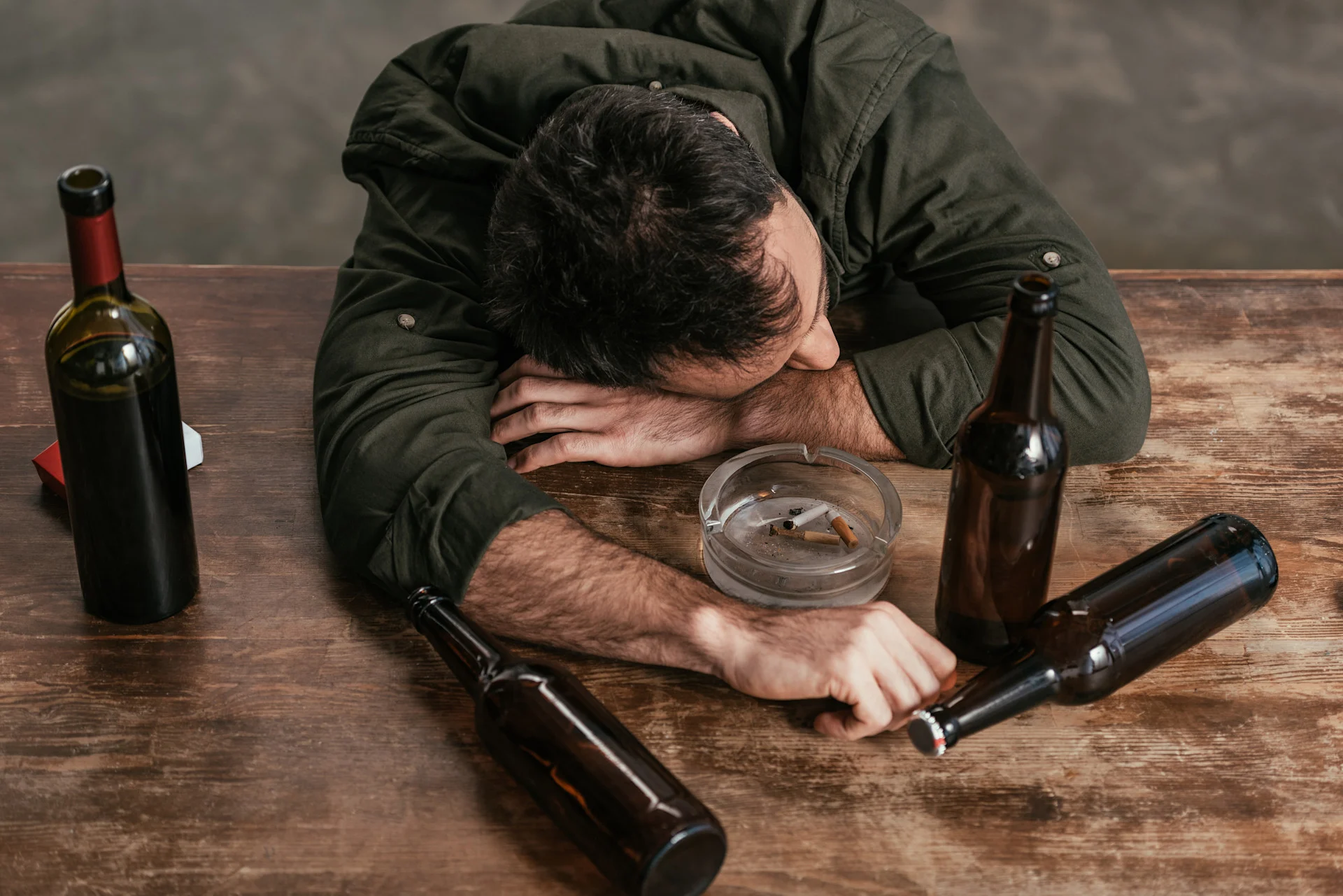Addiction Recovery - Drug and Alcohol
Alcohol and Health: Answers to Common Questions

Whether you're reevaluating your drinking habits, considering sobriety, or simply curious about how alcohol interacts with the body, we can help.
Is It Bad to Drink Alcohol Every Day?
Drinking alcohol daily can increase the risk of developing long-term health issues. It’s often a red flag for developing alcohol use disorder, even if you don’t feel out of control.
Daily alcohol use has been linked to:
Liver damage
High blood pressure
Increased cancer risk
Mental health concerns like depression and anxiety
If you find yourself drinking every night, ask yourself: Am I an alcoholic?
👉 Explore more: Signs of Alcoholism
What Does Giving up Alcohol Actually Do for the Body?
Quitting alcohol can lead to transformative health improvements, including:
Better sleep and energy
Improved liver and heart function
Reduced inflammation
Enhanced mood and mental clarity
Even just one month sober can yield noticeable results. Here's how to recover from alcohol addiction and start rebuilding your health.

We’re Here To Help You Find Your Way
Would you like more information about alcohol? Reach out today.
Can Alcohol Cause High Blood Pressure?
Yes, alcohol is a known contributor to high blood pressure. It:
Narrows blood vessels
Raises stress hormones like cortisol
Interferes with blood pressure medications
Chronic alcohol use is linked to long-term cardiovascular strain.
Can Alcohol Expire?
Alcohol doesn’t go bad in the way food does, but it can degrade:
Opened liquor loses flavor and potency
Wine and beer can spoil or go flat
Sugary or cream-based liqueurs may curdle or sour
Always check smell, taste, and expiration dates, especially on mixers.

We’ll Lead You to New Heights
Do you have more questions about alcohol? Reach out.
Can Alcohol Cause Anxiety?
Yes, and it’s one of the most common effects of prolonged drinking.
Alcohol disrupts brain chemistry, depletes GABA and serotonin, and contributes to rebound anxiety as it leaves the system. Many people drink to relieve anxiety, only to find it worsens over time.
👉 Want to know when drinking becomes a problem? Read: How to Know When Alcohol Use Crosses the Line
Can Alcohol Cause Dementia?
Chronic alcohol use is a risk factor for:
Memory loss
Cognitive decline
Alcohol-related dementia, like Wernicke-Korsakoff syndrome
Why is alcohol so addictive? The way it impacts brain function, especially over time, helps explain the connection.

We’re Here To Help You Find Your Way
Do you need advice about alcohol? Reach out today.
How Does Alcohol Affect the Brain?
Alcohol slows communication between neurons and interferes with key neurotransmitters like dopamine, glutamate, and GABA.
Short-term effects include:
Impaired coordination
Mood swings
Blackouts
Long-term effects may include depression, reduced impulse control, and brain shrinkage. Read more about how alcohol works in the brain
How Does Alcohol Affect Sleep?
Although alcohol can make you drowsy, it:
Interrupts REM sleep
Causes mid-night awakenings
May worsen sleep apnea
Leaves you feeling foggy, not refreshed
Sobriety often leads to restorative, uninterrupted sleep, especially after detox and withdrawal.

We’ll Lead You to New Heights
Would you like more information about alcohol? Reach out today.
Does Alcohol Raise Blood Pressure?
Yes. Alcohol has both immediate and long-term effects on blood pressure.
Even small amounts, especially in binge patterns, can lead to elevated readings. Consistent high intake contributes to chronic hypertension, which significantly increases stroke and heart attack risk.
Is Alcohol a Stimulant?
At first, alcohol can feel like a stimulant. It releases dopamine and lowers inhibitions. But physiologically, alcohol is a depressant. It slows brain activity and motor function.
This false energy is one reason it’s so deceptive.
Is Alcohol a Depressant?
Yes. Alcohol is a central nervous system depressant.
It may create a temporary sense of relief or numbness, but it:
Slows reaction time
Lowers heart rate and breathing
Deepens depressive symptoms
👉 Learn the six major signs of alcohol use disorder
Can You Drink Alcohol While Taking Antibiotics?
It depends on the medication. Alcohol:
Can reduce the effectiveness of antibiotics
Increases side effects like nausea and dizziness
Can trigger severe reactions with meds like metronidazole or tinidazole
The safest answer is to avoid alcohol until you've completed your course, especially if you're uncertain about interactions.
How Long Does It Take Alcohol to Leave Your System?
Blood: around 12 hours
Breath: up to 24 hours
Urine: 1 to 3 days
Hair: up to 90 days
Want specifics on breath testing? Here's our full breakdown: 📖 How long does alcohol stay on your breath?
Need help detoxing? Understand the signs and timeline of alcohol withdrawal
Final Thoughts
Whether you’re exploring sobriety, recovering from addiction, or just getting curious, understanding alcohol’s effects is the first step toward real change. If you recognize yourself in any of these signs, you’re not alone.
We’re here to help. Explore our alcohol rehab program and start the next chapter of your life.

We’re Here To Help You Find Your Way
If you or a loved one is struggling with addiction, there is hope. Our team can guide you on your journey to recovery. Call us today.
Written by
The Edge Treatment Center
Reviewed by
 Jeremy Arzt
Jeremy ArztChief Clinical Officer
Addiction Recovery
Drug and Alcohol
July 25, 2025
